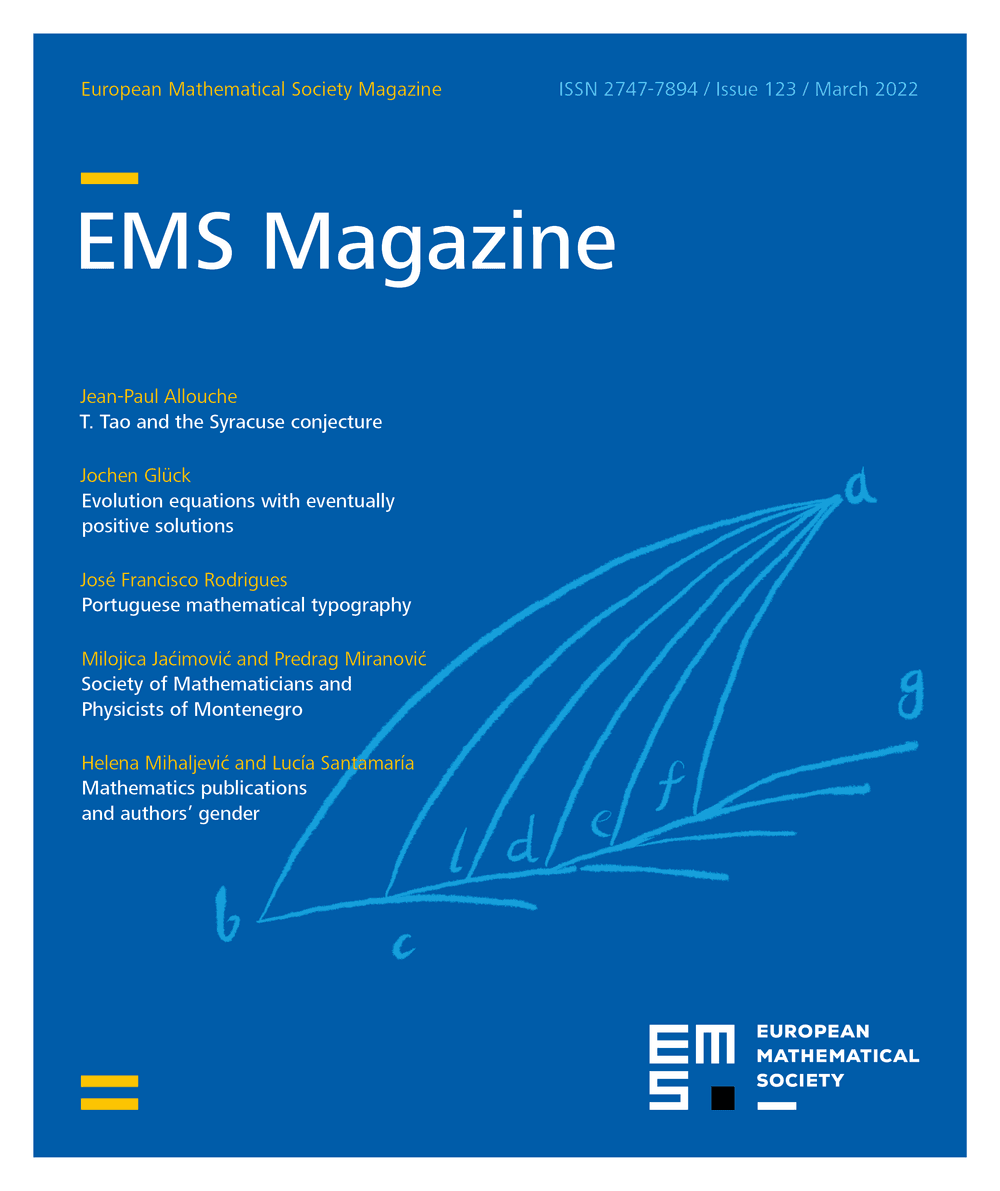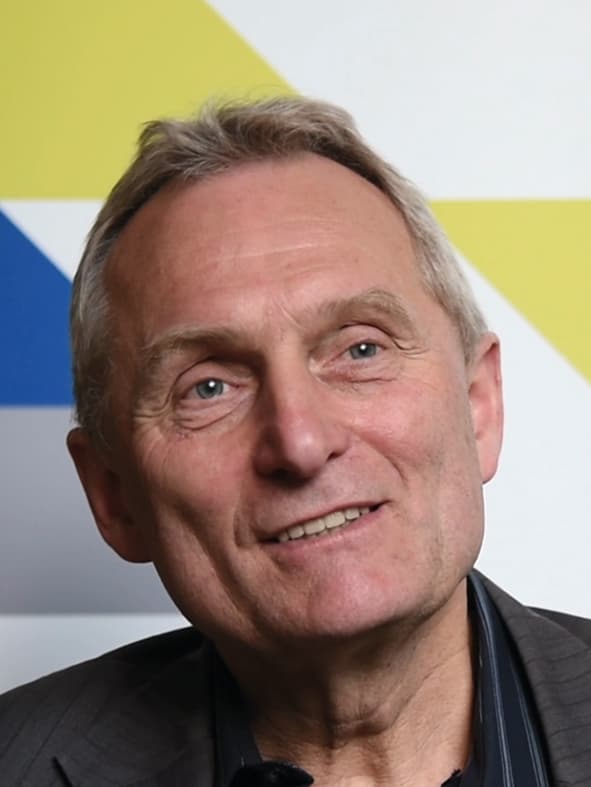All rights reserved.
A message from the president
Dear EMS members,
The editorial page in this issue is different from usual – because so is the year 2022! Firstly, we are once again attempting to celebrate the 30th anniversary of the EMS, and we truly hope that this can take place on site in Edinburgh on March 31. All are invited to participate: keep an eye on euromathsoc.org for details. Secondly, the EMS council is planned for June 25–26 in Bled, Slovenia. At that meeting, we will elect the next president, one vice president, the treasurer, and potentially a member-at-large. We will also discuss EMS plans for two new initiatives: the creation of an EMS youth academy, and the creation of topical activity groups. After that, the ICM in St. Petersburg will be the next major event. Please find a statement by the EMS executive committee below.
A further initiative on the part of the EMS is the creation of a new dynamic website concerning predatory journals; for more on this, see the announcement below.
With the pandemic still continuing and another political crisis keeping diplomats busy all over the world, I wish you all a happy, healthy, and peaceful 2022.
Volker Mehrmann, President of the EMS
All rights reserved.
A message from the executive committee
Azat Miftakhov is a young, promising Russian mathematician, who has already authored several serious mathematical publications.1https://doi.org/10.4064/ba191128-31-32https://arxiv.org/abs/2012.049623https://doi.org/10.1134/S1064562419020236 The “Miftakhov case” has been featured prominently in the mathematical and general academic community. The facts and allegations about the case can be found in several openly accessible links,4https://caseazatmiftakhov.org/fact-sheet/5https://www.hrw.org/news/2021/01/18/another-political-activist-jailed-russia and concern about this case has led to the publication of statements by many mathematical societies, including members of the European Mathematical Society.6https://www.mathunion.org/fileadmin/IMU/Publications/CircularLetters/2021/IMU%20AO%20CL%203_2021_IMU_statement.pdf7https://www.ams.org/images/PipherLtr.Miftakhov01-05-21.pdf8https://www.lms.ac.uk/news-entry/08022021-0957/lms-statement-azat-miftakhov-conviction9https://smf.emath.fr/smf-dossiers-et-ressources/dossier-azat-miftakhov10https://umi.dm.unibo.it/2020/12/23/azat-miftakhov/
We wish to share the widespread unease our community feels about this affair. In this year where the IMU has chosen “Mathematics Unites” as its theme for the International Day of Mathematics, we invite the Russian authorities to contribute to uniting mathematicians in St. Petersburg for the ICM 2022.
EMS executive committee
All rights reserved.
A message regarding predatory publishing practices
An expansion of so-called predatory practices in dissemination of results is a major problem faced by today’s research community, in particular mathematicians. It is also a major concern for the European Mathematical Society. There are journals and proceedings that neglect scientific quality checks via peer review in the sole interest of cashing in on publication fees from the authors and their home institutions. The success of predatory publishing is strongly tied to existing incentives, notably publication lists being measured by crude or sophisticated but ill-suited bibliometric data. Numbers being an essential part of any kind of mathematics, mathematicians are also well equipped to avoid numbers when not necessary. We believe that the mathematics community has enough tradition and means to protect itself from such threats, but best editorial and publication practices and the methods adopted by predatory journals that deviate from them must be recalled frequently. Once every author is aware that publishing in predatory journals can only harm her/his reputation and count negatively in any kind of evaluation, the problem should vanish.
This is why the EMS, upon the initiative of its ethics committee11https://euromathsoc.org/committee-ethics and publication and electronic dissemination committee12https://euromathsoc.org/committee-ped has decided to launch an awareness campaign about predatory practices in the broad domain of mathematics. It is important for all researchers, both young and experienced, to know what is going on; they must be capable of recognising predatory practices when they encounter them as authors or editors.
To initiate this campaign, the EMS will soon create a dynamic webpage containing hints on how to avoid being the victim of predatory journals. The EMS will ask member societies to link this page to their websites, and is looking forward to involving community members in discussion on the issue.
Thierry Bouche, Stefan Jackowski, Betül Tanbay
- 1
- 2
- 3
- 4
- 5
https://www.hrw.org/news/2021/01/18/another-political-activist-jailed-russia
- 6
- 7
- 8
https://www.lms.ac.uk/news-entry/08022021-0957/lms-statement-azat-miftakhov-conviction
- 9
https://smf.emath.fr/smf-dossiers-et-ressources/dossier-azat-miftakhov
- 10
- 11
- 12
Cite this article
Volker Mehrmann, Thierry Bouche, Stefan Jackowski, Betül Tanbay, A message from the president / A message from the executive committee / A message regarding predatory publishing practices. Eur. Math. Soc. Mag. 123 (2022), p. 3
DOI 10.4171/MAG/63
